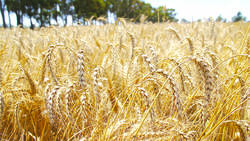The Land 19 April 2021
by Mollie Tracey
Warakirri to raise $500 million for new fund
by Mollie Tracey
Australian farmland is an appealing asset class to Canadian-backed investment group, Warakirri Asset Management, with the firm having launched a new fund which expects to raise $500 million.
The Institutional Farmland Fund is an open-ended fund which aims to "take advantage of the opportunities presented by the growing global demand for food and Australia's important part in the global food supply chain," the group said.
With a large and diverse portfolio of Australian agricultural land already, including assets in WA, New South Wales, Queensland, Victoria and South Australia in broadacre crops, horticulture, viticulture, nuts, poultry, dairy, water entitlements and agricultural infrastructure, Warakirri said this fund would be seeking larger, more concentrated institutional sized properties.
Warakirri has four other active investment strategies, with the Warakirri Diversified Agriculture Fund, Warakirri Cropping, Daybreak Cropping and Aurora Dairies.
The Institutional Farmland Fund will buy, develop, own and lease out the assets to who it deems to be high quality tenants.
It will be targeting annual income returns of five to six per cent and total returns of 10 to 12 per cent.
Assets the fund will be seeking include horticulture (nuts and fruit), viticulture (wine and table grapes), water entitlements and selected broadacre cropping properties.
Warakirri head of marketing and product Joe Marassa said this investment strategy had more of a focus on land rich assets.
"As part of our selection criteria, we will also make a balanced consideration to environmental, social, regulatory and financial outcomes, across each sector," Mr Marassa said.
It also plans to utilise Warakirri's Sustainable Best Practice framework, including strategies to reduce energy use and carbon emissions and improve water efficiency and biodiversity.
Interestingly, while Warakirri's assets are diverse across its various investment arms, it has steered away from grazing land.
In response to this, Mr Marassa said its investment strategy was better suited to land, water and biological assets, and that the range of crops it plans to invest in will provide it with good diversification and attractive income yields, while maintaining a relatively simple exposure to agriculture.
"The investment correlation of these investments is also particularly low when compared to the likes of stocks, bonds and commercial property, whereas livestock investments tend to be more closely correlated to market cycles in these mainstream asset classes," he said.
Warakirri expects the fund to deliver a strong return profile with more than half of the forecast returns to be delivered through regular income payments and the balance via long-term capital growth of the underlying assets.
The fund is designed for domestic and offshore institutional investors and has already secured "significant seed funding from one of Europe's largest pension funds".
Portfolio manager of the fund, Steve Jarrott, said there was a compelling case for investors to consider agricultural exposure as part of a diverse investment portfolio.
"The launch of this fund follows the success we have had with a similar strategy we developed for wholesale investors, including family offices, charities and advisory groups," Mr Jarrott said.
"That fund has recently completed deployment of its initial capital raising, establishing a foundation portfolio that will provide secure long-term income return of 8-9pc per annum, with strong long-term capital growth potential."
Warakirri has about $1.8 billion invested and manages more than 200,000ha of Australian farmland on behalf of domestic and international clients.
The group is backed by major Canadian pension fund, The Public Sector Pension Investment Board (PSP Investments).













